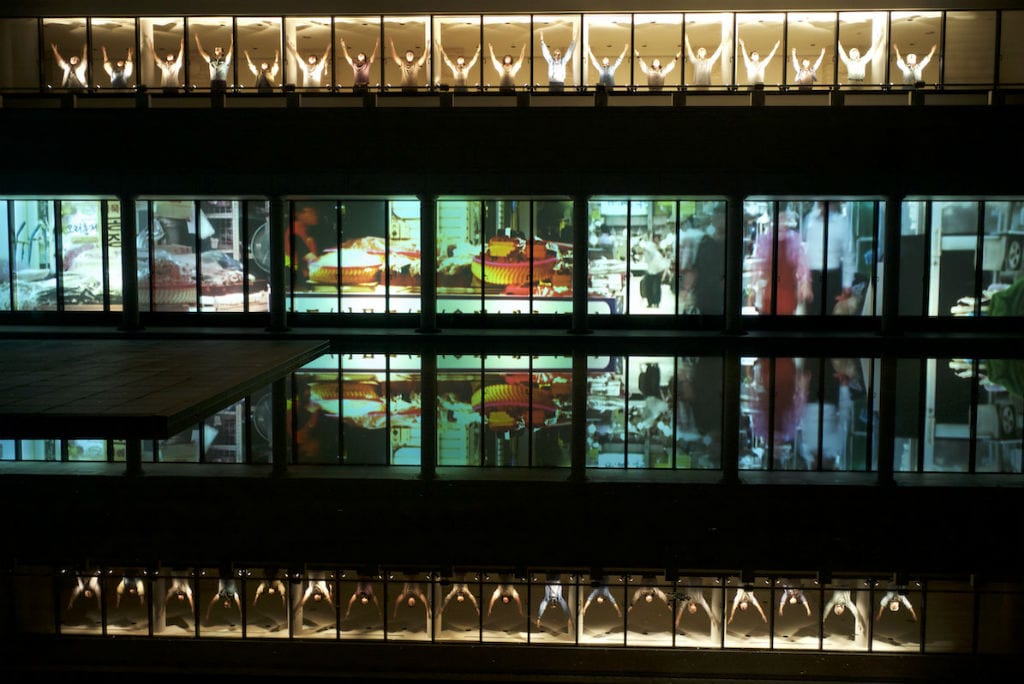From the moment Grandma (played by the brilliant Mee-young KIM) shuffles with her trolley into a too-bright lift that takes us up to the world of the Kasang (가상 “virtual”) Corporation offices in the city of Koom (꿈 “dream”) in the province of Hwansang (환상 “Fantasy”), like Alice down the rabbit hole our grasp loosens on what is, and what is not.
Gripping our special ‘K-Pads’ that know too much already and lure us into revealing more, we are guided politely by brightly suited Kasang employees through a series of dark windowless spaces that pulsate either with the screens and noise that make up modern South Korea’s Westernised experience, or with the echoing silence of absent voices and lives. Long darkened corridors with broken radiators, or locked prison cells with a chair and bucket, take over from the celluloid teeny-pop dance groups and hard-sell advertisements as Kasang’s origins begin to emerge.
In May 1980, hundreds, potentially thousands (the evidence is ‘lost’) gave their lives in the struggle to found the democratic South Korean constitution that eventually followed in 1987. In the 30th anniversary of that constitution, director Tristan Sharps asks what those who died in the struggle would make of the result of their sacrifice. A derelict ‘60s office in Old Town Hull provides the empty canvas required for him to populate with convincing installations. Lack of site-specificity is a positive advantage since reality and known roots, as argued in One Day Maybe, are what are missing from modern Seoul.
Grandma is our emotional guide, inadvertently steering us through the barrage of information and sensory stimuli. She is thrilled by the shopping mall, encourages us to be brave in the virtual maze. Her climax comes in a wonderful Jesa ceremony which involves a ritual that remembers, and summons, those who have died. In a splendidly atmospheric wooden box room, she shares food and spirits of an alcoholic nature, before celebrating a practiced and intimate relationship with spirits of the dead, reminding us that vacancy and non-reality belong to Grandma too, just as they do to the virtual realties or experience games we have been playing.
Like the excellent ensemble work, technology is a key factor. Technology made South Korea modern, busy and rich. One Day Maybe suggests it also provides a distraction from the unfinished business in its soul(Seoul). The perpetrators of the brutal crack-down are still alive and free, released after just 10 years for their war crimes. Empty technology or consumption of identikit prison-like apartments seem poor recompense.



